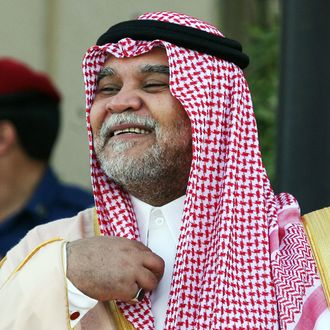
The 28 pages have been released. For more than a decade, this section of the 9/11 Commission Report, which discusses the potential of Saudi government involvement in the attacks, has been hidden from public view. Late on a July Friday, Congress declassified the documents, while encouraging readers to view them as an exoneration of the Saudi kingdom.
“I hope that the release of these pages, with appropriate redactions necessary to protect our nation’s intelligence sources and methods, will diminish speculation that they contain proof of official Saudi Government or senior Saudi official involvement in the 9/11 attacks,” California representative Adam Schiff said in a statement.
California representative Devin Nunes emphasized that the evidence presented in the pages constitute “unverified leads that were later fully investigated by the intelligence committee.” In its 2004 report, the commission wrote that it had “found no evidence that the Saudi government as an institution or senior officials within the Saudi government funded al-Qaeda.”
That wording left open the possibility that they had found evidence that non-senior Saudi officials supported Al Qaeda. The declassified documents establish that they did, in fact, have such evidence.
Per the report, the FBI had received multiple tips from individuals within the Muslim community alleging that a man named Omar al-Bayoumi was a Saudi intelligence officer. The report continues:
FBI files suggest al-Bayoumi provided substantial assiantce to hijackers Khaldi al-Mihdhar and Nawaf al-Hazmi after they arrived in San Diego in February 2000. Al-Bouyami met the hijackers at a public place shortly after his meeting with an individual at the Saudi consulate and there are indications in the files that his encounter with the hijackers may not have been accidental. During the same timeframe al-Bouyami had extensive contact with Saudi government establishments in the United States and received financial support from a Saudi company affiliated with the Saudi Ministry of Defense.
The FBI had also received unverified reports that Osama Bassnan, a close associate of al-Bayoumi, was a Saudi intelligence operative. Bassnan “told an FBI asset that he did more for the hijackers than al-Bayoumi did,” the report states. The FBI believed him to be a supporter of bin Laden and Eritrean Islamic Jihad.
Bassnan had many ties to the Saudi government, including past employment at the Saudi Arabian Education Mission. According to a CIA memo referenced in the report, Bassnan received financial aid from the former Saudi ambassador to the United States Bandar bin Sultan.
“On at least one occasion,” the report says, “Bassnan received a check directly from Prince Bandar’s account. According to the FBI, on May 14, 1998, Bassnan cashed a check from Bandar in the amount of $15,000. Bassnan’s wife also received at least one check directly from Bandar.”
The documents also show that Al Qaeda operative Abu Zubaydah had the telephone number for a corporation that managed the “affairs of the Colorado residence of the Saudi Ambassador Bandar” in his personal phone book.
The report lists several other pieces of circumstantial evidence for potential Saudi involvement, none of which establish complicity at the upper echelons of the Saudi government.
Ultimately, the report may be less damning for what it suggests about the Saudi government than for what it says about our own.
“Prior to September 11, the FBI apparently did not focus” on “Saudi nationals in the United States due to Saudi Arabia’s status as an American ‘ally,’” the documents say.
It is hard not to suspect that similar considerations influenced our military’s focus after September 11.






























